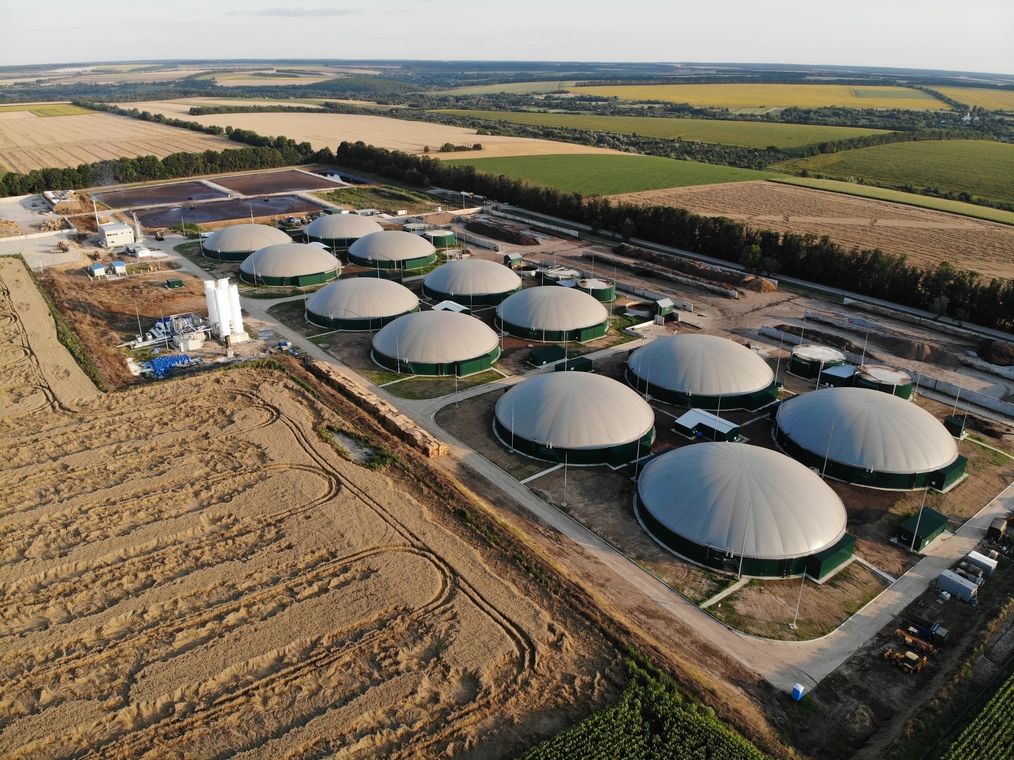Biomass energy provides a sustainable and renewable source of energy, reducing dependence on finite fossil fuels, it helps mitigate climate change by reducing greenhouse gas emissions, contributing to a cleaner and healthier planet, biomass energy promotes waste management by utilizing organic waste materials, reducing landfill usage and associated environmental impacts, and it creates job opportunities and stimulates economic development, particularly in rural areas where biomass resources are abundant.
A Sustainable and Renewable Energy



Biomass energy, with its ability to provide a sustainable and renewable source of energy, presents a transformative solution that addresses the pressing global challenges of finite fossil fuel reserves, environmental degradation, and the urgent need for cleaner energy alternatives. Unlike fossil fuels, which are exhaustible and contribute to greenhouse gas emissions, biomass energy harnesses the inherent energy stored in organic matter, including plant biomass and animal waste, which can be continuously cultivated, regrown, or replenished through responsible and sustainable practices. This inherent renewability of biomass energy ensures a perpetual supply of energy that not only meets our current energy demands but also safeguards the needs of future generations, fostering a harmonious balance between human development and environmental preservation.
By embracing biomass energy as a viable and environmentally sound alternative, we can alleviate the strains on our finite fossil fuel resources, reduce our carbon footprint, and pave the way for a more sustainable, resilient, and ecologically balanced energy landscape that benefits present and future generations alike.
Reducing Dependence on Finite Fossil Fuels

Biomass energy is revolutionizing the energy landscape by delivering tangible benefits to numerous individuals and communities today through a profound reduction in their dependence on finite fossil fuels. In sharp contrast to fossil fuels, whose supplies are inherently limited and rapidly depleting, biomass energy harnesses the power of organic materials that possess the remarkable capacity for continuous growth and replenishment. By embracing biomass energy as a viable and sustainable alternative, we embark on a transformative path that enables us to curtail our reliance on fossil fuels and liberate ourselves from the uncertainties linked to their availability, accessibility, and volatile price fluctuations.
The profound shift towards biomass energy not only bolsters energy security on individual and community levels but also engenders resolute steps toward mitigating the severe environmental impacts stemming from the extraction, production, and combustion of fossil fuels. The utilization of organic materials, ranging from dedicated energy crops to agricultural residues and forest biomass, enables us to harness the inherent energy stored within these resources while ensuring responsible and sustainable practices that foster their continual regeneration.

Through this paradigm shift, we establish a foundation rooted in sustainability, resilience, and environmental stewardship, as biomass energy represents a renewable and inexhaustible alternative to the finite fossil fuel reserves that have long underpinned our energy systems. By embracing biomass energy, we forge a path towards a more reliable, diversified, and environmentally conscious future, where the uncertainties of fossil fuel dependency are replaced with the enduring promise of sustainable energy resources.
Together, we can create a world where energy access, affordability, and environmental integrity coexist harmoniously, empowering individuals, communities, and future generations to thrive in a world shaped by renewable and sustainable practices.
Mitigate Climate Change

Biomass energy has emerged as a pivotal force in combatting the existential threat of climate change and bringing substantial benefits to numerous individuals and communities today.
Its utilization of organic materials represents a groundbreaking approach that effectively reduces greenhouse gas emissions, with a particular emphasis on carbon dioxide (CO2), the primary contributor to global warming.
When biomass is harnessed for energy production, the CO2 released into the atmosphere during the combustion process is offset by the CO2 absorbed by the biomass feedstock during its growth phase. This harmonious interplay creates a closed carbon cycle, rendering biomass energy carbon-neutral or even carbon-negative when sustainable practices are diligently followed. By effectively mitigating CO2 emissions, biomass energy emerges as a powerful tool in the urgent battle against climate change, significantly contributing to the preservation of our environment and ensuring a sustainable future for generations to come.



The carbon-neutral or carbon-negative nature of biomass energy arises from its unique ability to utilize organic materials that actively sequester and store carbon throughout their growth process. For instance, plants absorb atmospheric CO2 through photosynthesis, utilizing sunlight and converting it into biomass. By utilizing this biomass as an energy source, we tap into the stored carbon, releasing it back into the atmosphere, but simultaneously stimulating the growth of new biomass that will once again absorb CO2, completing the cycle.
This closed carbon cycle fundamentally distinguishes biomass energy from fossil fuel combustion, which involves the release of ancient carbon reserves that have been sequestered underground for millions of years. The burning of fossil fuels intensifies the greenhouse effect, elevating atmospheric CO2 concentrations and contributing to the detrimental warming of our planet.
Biomass energy’s capacity to mitigate climate change extends beyond its carbon neutrality. By displacing fossil fuel combustion, biomass energy reduces the overall emissions of other greenhouse gases, such as methane and nitrous oxide, which possess significantly higher global warming potentials than CO2. By choosing biomass energy over fossil fuels, we not only reduce our carbon footprint but also curtail the release of these potent greenhouse gases, providing a holistic and comprehensive approach to combatting climate change.
Waste Management Promotion

Biomass energy has become a powerful catalyst for promoting effective waste management practices, delivering substantial benefits to individuals and communities worldwide. By harnessing the potential of organic waste materials, including agricultural residues, forestry by-products, and food waste, biomass energy systems offer a sustainable and environmentally friendly solution to address the growing concerns of landfill waste and associated pollution.
Traditionally, organic waste has been disposed of in landfills, contributing to the generation of greenhouse gases, particularly methane, a potent contributor to climate change. However, biomass energy systems intercept this waste stream and transform it into a valuable resource. By converting organic waste into energy through controlled combustion or other conversion technologies, biomass facilities not only reduce the volume of waste destined for landfills but also significantly curtail methane emissions. This diversion of organic waste to biomass energy production serves as a proactive measure to mitigate the environmental impacts associated with landfill waste, combating both climate change and pollution.
 Moreover, the conversion of waste into energy through biomass systems represents a paradigm shift in resource management. Rather than viewing organic waste as a burden or liability, biomass energy provides a valuable and productive use for these materials. By repurposing organic waste as feedstock for energy production, biomass facilities enhance resource efficiency and sustainability, minimizing the need for fossil fuel extraction and reducing the strain on non-renewable resources. This not only conserves finite resources but also establishes a circular economy framework where waste materials are transformed into valuable energy resources.
Moreover, the conversion of waste into energy through biomass systems represents a paradigm shift in resource management. Rather than viewing organic waste as a burden or liability, biomass energy provides a valuable and productive use for these materials. By repurposing organic waste as feedstock for energy production, biomass facilities enhance resource efficiency and sustainability, minimizing the need for fossil fuel extraction and reducing the strain on non-renewable resources. This not only conserves finite resources but also establishes a circular economy framework where waste materials are transformed into valuable energy resources.
Additionally, the promotion of sustainable waste management practices through biomass energy positively impacts local communities. By diverting organic waste from landfills, biomass facilities help mitigate odor and pollution issues often associated with traditional waste disposal methods. This fosters a cleaner and healthier living environment for nearby communities, improving the overall quality of life.
Furthermore, biomass energy systems can contribute to job creation and economic development. The establishment and operation of biomass facilities require a skilled workforce for tasks such as waste collection, biomass feedstock management, plant operation, and maintenance. These job opportunities stimulate local economies, provide employment, and support the growth of associated industries.
Reducing Landfill Usage and Associated Environmental Impacts

Biomass energy is spearheading a significant transformation by actively reducing landfill usage and mitigating the associated environmental impacts, thereby bringing substantial benefits to a wide range of individuals and communities today. By harnessing the potential of organic waste materials, including agricultural residues and food waste, biomass energy systems provide an effective solution to divert these materials from traditional landfill disposal methods.
The diversion of organic waste to biomass energy production yields numerous environmental advantages. First and foremost, it substantially reduces the volume of waste destined for landfills, alleviating the strain on these facilities and extending their lifespan. This reduction in landfill usage is critical, as landfills are not only eyesores but also potent sources of environmental degradation. By diverting organic waste from landfills, biomass energy systems help alleviate the environmental burdens associated with landfilling.
One of the most significant environmental benefits of reducing landfill usage through biomass energy is the mitigation of greenhouse gas emissions, especially methane.

Organic waste materials decompose in landfills, producing methane, a potent greenhouse gas with a significantly higher warming potential than carbon dioxide. By diverting organic waste to biomass energy production, methane emissions are significantly curtailed. Biomass energy facilities capture and utilize methane as a fuel source, converting it into energy rather than allowing it to escape into the atmosphere. This emission reduction plays a crucial role in mitigating climate change and reducing the carbon footprint associated with waste management practices.
In addition to greenhouse gas mitigation, biomass energy also helps in minimizing leachate contamination, another significant environmental concern associated with landfills. Leachate, a liquid formed from the decomposition of waste, can contain a variety of pollutants that can seep into the surrounding soil and groundwater, potentially causing contamination. By diverting organic waste to biomass energy production, the generation of leachate is reduced, mitigating the risk of environmental contamination and protecting valuable water resources.
Furthermore, the shift towards biomass energy promotes more sustainable waste management practices. Instead of considering organic waste as a burden to be discarded, it is transformed into a valuable resource. Biomass energy facilities view organic waste as a feedstock for clean energy production, providing a productive use for materials that would otherwise contribute to landfill waste. This paradigm shift fosters resource efficiency, circular economy principles, and a more sustainable approach to waste management.
By reducing landfill usage and associated environmental impacts, biomass energy contributes to a cleaner and healthier environment for everyone. The diversion of organic waste to biomass energy production minimizes the environmental burdens of landfills, such as greenhouse gas emissions and leachate contamination. Moreover, by embracing sustainable waste management practices, biomass energy systems promote a more responsible and efficient use of resources, enhancing the overall sustainability of waste management efforts.
Job Opportunities



Biomass energy, beyond its profound environmental benefits, serves as a catalyst for job creation, delivering a multitude of employment opportunities that are vital for individuals and communities alike. With the increasing demand for renewable energy sources, biomass energy projects have emerged as instrumental drivers of sustainable development, fostering job growth across diverse sectors and contributing to economic prosperity.
The development and operation of biomass energy infrastructure generate a wide array of job opportunities. During the construction phase, skilled workers, including engineers, electricians, technicians, and laborers, are in demand to build biomass power plants and establish biomass processing facilities. This surge in construction-related employment not only creates temporary jobs but also stimulates local economies, driving economic growth and enhancing the overall well-being of communities.
Once biomass energy facilities are operational, a steady workforce is required for their efficient and effective operation and maintenance. Skilled technicians, operators, and maintenance personnel play a critical role in ensuring the smooth running of biomass energy systems. They are responsible for managing biomass feedstock, maintaining equipment, monitoring energy production, and addressing any technical issues that may arise. These positions provide long-term employment opportunities, contributing to the sustainability and performance of biomass energy projects while fostering expertise in the renewable energy sector.

Furthermore, biomass energy projects spur job creation and economic growth along the biomass supply chain. Farmers, foresters, and landowners play a vital role in biomass feedstock production, cultivating energy crops or supplying biomass materials such as agricultural residues and wood waste. These activities generate additional income streams for agricultural and forestry sectors, enhance rural development, and strengthen local economies.
The expansion of the biomass energy sector also creates employment opportunities in supporting industries and services. Transportation and logistics companies are required to collect and deliver biomass feedstock to energy facilities. Consulting firms, research organizations, and engineering companies specializing in biomass energy provide expertise, professional services, and technological advancements, thus generating employment opportunities and fostering innovation.
The job creation potential of biomass energy extends beyond direct employment.
Indirectly, the growth of biomass energy projects spurs job creation in related sectors, such as equipment manufacturing, engineering services, and maintenance and support industries. This ripple effect further strengthens the local economy and bolsters the overall socio-economic fabric of the region.
By embracing biomass energy as a sustainable and renewable alternative to fossil fuels, communities can reap the economic benefits of job creation and economic growth. The development and operation of biomass energy projects not only meet the increasing demand for renewable energy but also stimulate employment opportunities, enhance livelihoods, and foster local economic development. Moreover, the expansion of biomass energy contributes to a skilled workforce, nurturing expertise in renewable energy technologies and promoting a sustainable transition toward a greener future.
Job Creation in Construction and Installation
The development of biomass energy infrastructure presents a remarkable opportunity for job creation, with a diverse range of skilled workers playing crucial roles in the construction and installation of biomass facilities. These projects require a skilled workforce to execute a multitude of tasks, ranging from building biomass power plants to setting up biomass processing facilities.
During the construction phase, various professionals are in high demand, including construction workers, engineers, electricians, technicians, and project managers. Construction workers are responsible for physically erecting the biomass power plants, assembling the necessary structures, and ensuring the successful implementation of the project. Engineers play a vital role in designing and overseeing the construction process, ensuring the integration of biomass energy systems with existing infrastructure, and adhering to safety standards. Electricians and technicians focus on the installation of electrical components, wiring, and control systems, ensuring the proper functioning of biomass energy facilities.

The employment opportunities generated during the construction phase of biomass energy projects have significant economic impacts on local communities. The influx of temporary jobs injects vital income into the local economy, improving the standard of living and boosting consumer spending. The hiring of local construction workers and the procurement of construction materials and supplies further stimulate economic activity, supporting local businesses and creating a multiplier effect.
Moreover, the construction and installation phase of biomass energy projects presents an opportunity for skill development and capacity building within the community. Workers acquire specialized knowledge and expertise in renewable energy technologies, enhancing their employability in the growing field of sustainable energy. Additionally, the presence of biomass energy infrastructure attracts investments and business opportunities, fostering long-term economic growth and development.
By providing employment opportunities during the construction phase, biomass energy projects not only contribute to the immediate economic well-being of local communities but also lay the foundation for long-term sustainability. The establishment of biomass energy infrastructure not only supports the transition to a more sustainable energy system but also creates a skilled workforce that can propel the growth of the renewable energy sector.
Operation and Maintenance
Once biomass energy facilities transition into the operational phase, the significance of skilled technicians, operators, and maintenance personnel becomes paramount in ensuring the efficient and effective functioning of biomass energy systems. These individuals play a vital role in the ongoing operation and maintenance, performing a diverse range of tasks essential for the sustainability and optimal performance of biomass energy projects.
Biomass feedstock management is a critical aspect of the operational phase, requiring skilled personnel to oversee the collection, storage, and preparation of biomass materials.
They ensure a steady and reliable supply of feedstock for energy production, coordinating with suppliers, monitoring inventory levels, and implementing quality control measures. Proper management of biomass feedstock is crucial to maintaining a consistent and uninterrupted energy generation process.
Equipment maintenance is another key responsibility during the operational phase. Skilled technicians perform routine inspections, diagnostics, and repairs to ensure that biomass energy systems operate at peak efficiency. They are well-versed in the intricacies of biomass boilers, turbines, generators, and other equipment, ensuring that they are functioning optimally and addressing any issues promptly to minimize downtime. Proactive maintenance practices contribute to the longevity and reliability of biomass energy facilities.

Monitoring energy production is a crucial task that requires skilled operators who closely monitor various parameters, such as temperature, pressure, and energy output. They ensure that biomass energy systems operate within specified parameters, detect any abnormalities or inefficiencies, and make necessary adjustments to optimize performance. Skilled operators are responsible for maintaining system stability, ensuring safe operations, and maximizing energy production.
These roles in the ongoing operation and maintenance of biomass energy systems provide long-term employment opportunities. Skilled technicians, operators, and maintenance personnel contribute to the sustainability of biomass energy projects by ensuring reliable operation, minimizing downtime, and maximizing energy output. Their expertise and dedication ensure the continued success of biomass energy facilities and promote the growth and development of the renewable energy sector.
Supply Chain and Biomass Feedstock Production

Growing dedicated energy crops or supplying biomass materials such as agricultural residues and wood waste not only supports the biomass industry but also generates additional income streams for rural communities.
By diversifying their revenue sources, farmers and landowners can reduce their dependence on traditional agricultural practices and enhance their economic resilience. This involvement in biomass feedstock production also supports the agricultural and forestry sectors, stimulating local economies, and contributing to the overall economic development of rural communities.
Supporting Industries and Services

The expansion of the biomass energy sector not only drives direct employment but also creates opportunities in supporting industries and services. Transportation and logistics companies play a crucial role in the biomass supply chain, facilitating the collection and delivery of biomass feedstock to energy facilities. These companies are responsible for ensuring a reliable and efficient transportation network, connecting biomass producers with biomass energy plants. The demand for transportation services specifically tailored to biomass feedstock contributes to job creation and economic growth within the transportation sector.
Furthermore, the growth of the biomass energy sector fuels the demand for specialized expertise and professional services. Consulting firms, research organizations, and engineering companies with a focus on biomass energy provide invaluable support to the industry. They offer technical guidance, conduct feasibility studies, design biomass energy systems, and assist in the optimization of biomass production and utilization. These firms contribute to job creation within their respective fields and enhance the overall knowledge and understanding of biomass energy technologies.
The expansion of supporting industries and services alongside the biomass energy sector creates a synergistic effect, fostering job opportunities, and economic growth. It establishes a robust and interconnected network of businesses and organizations that cater to the specific needs of the biomass energy industry, contributing to the overall development and sustainability of the renewable energy sector as a whole.
Take action today by exploring biomass energy options in your area. Engage with local biomass energy providers, consult with experts, and learn about the benefits and feasibility of biomass energy systems for your home, business, or community. Go Biomass now!
